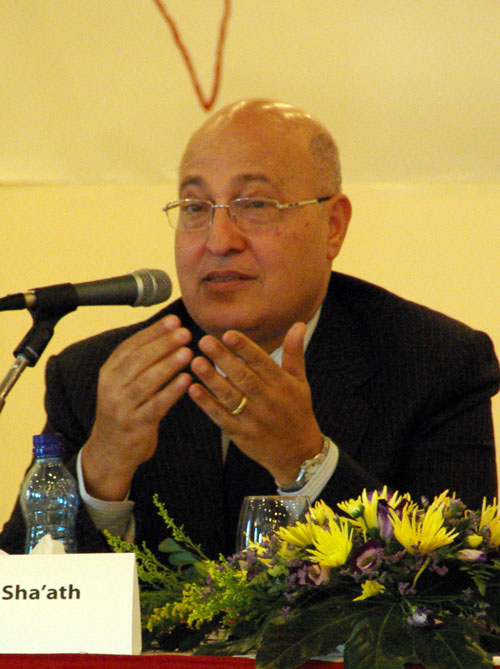UPDATES
A “Two-State Solution” or a “Two-Stage Solution”?
July 28, 2011 | Daniel Meyerowitz-Katz

MEMRI has translated an interview with Nabil Shaath, Head of Foreign Relations in Fatah – the dominant party within the Palestinian Authority – which certainly provides cause for concern. Shaath essentially confesses that the PA’s commitment to a two-state solution is merely part of a larger plan to eventually end Israel’s existence as a Jewish homeland.
[The French initiative] reshaped the issue of the “Jewish state” into a formula that is also unacceptable to us – two states for two peoples. They can describe Israel itself as a state for two peoples, but we will be a state for one people. The story of “two states for two peoples” means that there will be a Jewish people over there and a Palestinian people here. We will never accept this – not as part of the French initiative and not as part of the American initiative. We will not sacrifice the 1.5 million Palestinians with Israeli citizenship who live within the 1948 borders, and we will never agree to a clause preventing the Palestinian refugees from returning to their country. We will not accept this, whether the initiative is French, American, or Czechoslovakian.
As Barry Rubin notes, this is a reiteration of the decades-old PLO policy of a “two-stage solution” – Palestinian statehood in the territories to be used as a springboard for Israel’s eventual elimination.
In light of this statement, the arguments being made by various PA representatives appear somewhat different. Take, for example, statements made yesterday by Riyad Mansour, the Palestinian delegate to the UN:
“The consecration of the two-state solution in bold resolutions — including recognition of the state of Palestine…on the basis of the pre-1967 borders and its admission as a full member of the organization — will help to make the two-state solution more inevitable,” he said.
The refusal of the PA to negotiate with Israel and their determination instead to attempt to muster international pressure on Israel comes not from a desire to reach a peaceful agreement and, as claimed, a frustration with Israeli “obstinance”; but rather, the tactic is a means of heading towards the goal of a single Palestinian-majority state. Shaath’s sentiments illustrate the PA’s wily use of the term “two-state solution” – in fact an abuse of that term, because both states are to be majority Palestinian – and vindicate Israeli Prime Minister Benjamin Netanyahu’s demand that the PA needs to recognise Israel as a Jewish state or homeland of the Jewish people in any final peace. Since 1947 the international community has been calling for two states for two peoples; this solution has the support of the majority in Israel and is recognised as the only way to end the conflict by the US, Australia, the EU, UN and almost everyone else seeking a genuine resolution.
Clearly, there is a fundamental difference between this notion of “two states for two peoples” and the PA’s idea of a “two-state solution”. With this in mind, it is no wonder that their UN bid is beginning to unravel.
Daniel Meyerowitz-Katz
Tags: Palestinians





